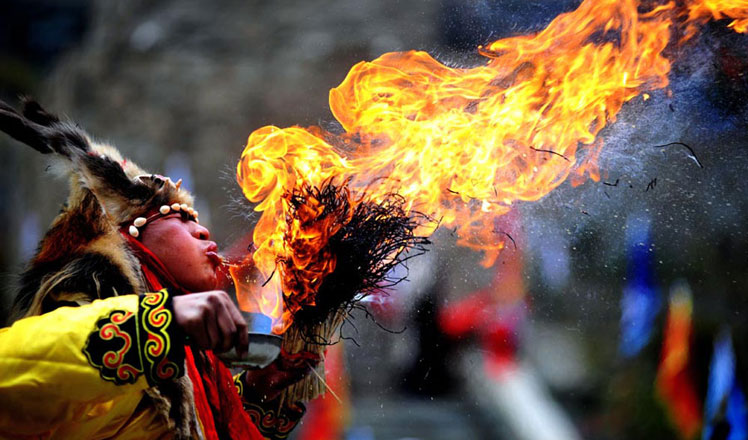Bringing life back to Qukou
Updated: 2016-04-08 08:05
By Luo Wangshu(China Daily)
|
|||||||||
I first visited Qukou, a township in Kaixian county, Chongqing, in the winter of 2012. I was left with a deep impression of the air pollution, the large number of plastic bags and pieces of paper discarded in the streets, and the green algae blooms that drifted on the surface of the river and grew along the banks. The trees were withered and dying.
I met a 50-something farmer who had injured his left leg while working in a factory in a different province as a migrant worker. The injury had forced him to return to Qukou, where he lived on the compensation the government had provided for land commandeered for the construction of the Three Gorges Dam, even though the sum was too small to support him for the rest of his life.
I don't remember his name, but the sight of him limping away is embedded in my memory.
Before returning to Kaixian, I imagined a similar experience; a dirty river, dusty, poorly maintained roads and miserable locals.
However, when I arrived in Qukou, in the exact same spot as four years before, I couldn't believe my eyes.
The road was the same, but the garbage had been cleared away. The water in the river was clear, and the trees that grew above and below the waterline were fresh and green, although a little denuded by the harsh winter.

"I plant water chestnuts, which grow on the surface of the river. They require very little attention, but always produce a bumper harvest," said Zhu Hongbao, a 59-year-old farmer.
"I don't own any land now because the water level has risen. The government compensated everybody, but we still need to find other ways of earning a living," he said. "Water chestnuts are so easy to plant. I sow the seeds, then harvest the chestnuts and sell them. The rest of the time, I enjoy myself playing games, such as mahjong," he added.
To protect the water quality, farmers are forbidden from planting crops when the water level rises.
"It's hard to completely ban local farmers from planting on their own land. Before, some farmers planted crops when the land was exposed to the air, but when the water level rose and covered the land, the dead crops released nitrous oxide, which polluted the air," said Huang Yazhou, deputy head of the Pengxi River wetland natural reserve administration bureau in Kaixian.
"We teach them (the farmers) to plant crops, such as water chestnuts, that are valuable and don't affect the quality of the water," he said. "It hasn't been easy, but gradually the farmers have taken all the lessons on board. After all, the river is their home and they want the best for it."
(China Daily 04/08/2016 page6)
Today's Top News
Zhubi Reef lighthouse comes to life
Huawei picks UK for global launch of new phone
Social media fury after woman claims attack in hotel
Germany rules out debt relief for Greece
Li: Tax reform to boost vitality of real economy
First wave of migrants returned to Turkey
Once-endangered pony makes comeback
Bookshop worms way into community
Hot Topics
Lunar probe , China growth forecasts, Emission rules get tougher, China seen through 'colored lens', International board,
Editor's Picks

|

|

|

|

|

|







